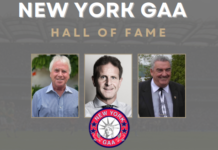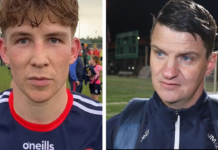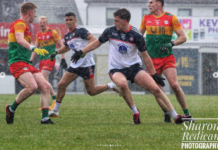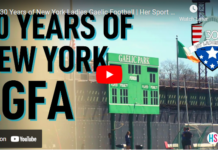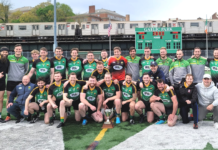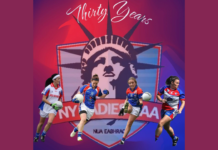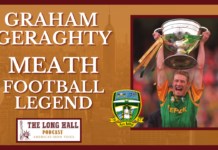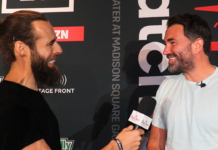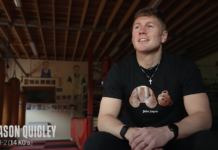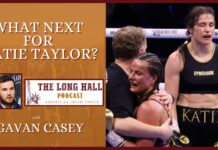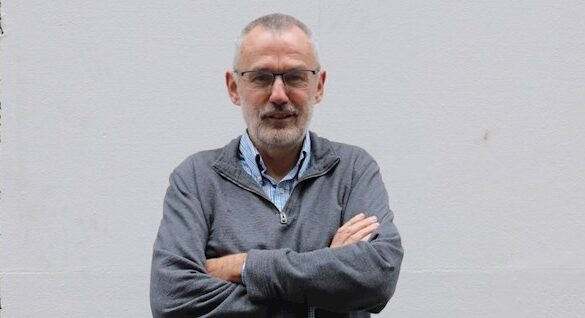
New York official Larry McCarthy is bidding to become the first representative outside of Ireland to serve as GAA president. The Bishopstown native has lived in the US since 1985 and previously served as New York Board chairman and PRO. He currently serves on the GAA’s Management Committee and is chairman of Sligo club who recently won their first senior football title.
Interview by Michael Dorgan
Q: What made you enter the race?
A:There’s a public service element at some level as the GAA is an organisation I’ve been involved with at all levels for a significant length of time and I would like to stay involved. I got into management as the first person elected as a trustee of the Association from outside of England or Ireland 18 months ago. I’m fascinated by the work we do and by the stuff that comes across our desks in that role and I’d love to continue serving at Presidental level.
Q: How would you fulfil the role from New York?
A: If elected I will live in Ireland for the three years. There are no “ifs” or “buts” about that as the job is too important.
Q: What does your candidacy bring to the table?
A: From my professional career my candidacy is unique in understanding what’s happening in the broader world of sport in terms of marketing and in the business element of sport. I’m studying sport on a day-to-day basis and looking at sports organisations around the world and seeing how they are doing things. The GAA is unique in a global sense in that we are the only sporting organisation which I’m aware of that has two sports managed at an elite level and participatory level at a local level. Nobody else does it so there is no model out there for us to follow.
Q: Is there a disconnect between the grassroots and the upper echelons of the GAA?
A: I’d have to say no because we’re all from the grassroots ourselves essentially. I mean I spent last weekend in Ireland. I was at three matches over the weekend, I’m back here in New York this weekend because Sligo are in the junior B football final and that’s highly significant to our club.
Q: But hasn’t there been a drop in the volunteering?
A: Well I’d say you can see that is across the board in life. It is not just in sport that people are dropping out and not volunteering to the same extent perhaps as they once did. People’s lives are becoming more complicated and demands on time has risen significantly. It’s harder for people to give their commitment but that doesn’t necessarily mean there’s a disconnect.
Q: What are the biggest challenges facing the GAA?
A: Maintaining the balance between our intercountry game and are our club game.
Q: What is the GAA doing right?
A: It’s doing a significant amount of things right. When you look at the inter-county game we’re running and the stuff that happens in clubs and in communities, it’s fascinating what we’re involved in as an institution. We have tentacles into the community and they may not necessarily be on an official format but we are involved in cultural activities through Scór and through the Irish language. We’re much more than a sporting organisation. There’s no other sport organisation in the world that does that array of things as well as manage top class sport with 82,000 people at their Grand final.
Q: What is the GAA doing wrong?
A: We’re spending too much money with inter-county backroom teams which have grown significantly. We need to get balance in terms of when we’re going to run university and college competitions and the U20 football championship. It’s amazing that the U20 hurling championship can run without a word yet there seems to be some angst about when we are actually going to run the U20 football. There’s a tension there and that’s when I go back to the notion of balance again.
Q: Are you in favour of a two tier football system?
A: Yes, I hope it will come in a special congress. I think it will make a significant difference allowing players to play for the All-Ireland, which is our Holy Grail, and then give them an opportunity to play at a competitive level which they can do well at.
Q: Would New York be involved in a two tier system?
A: Yes I think we would. We are now in a different circumstance than we were in 2006 when we got to the Ulster hurling final and we couldn’t travel.
Q: How important are the games in the US to the GAA?
A: They’re extremely important socially in the context of the Irish community here and for the community at home.
Q: What are your thoughts on pay for play?
A: I think inevitably some level of professionalism is going to come into the GAA. I would prefer never to see it happen but the reality is we are probably the last bastion of amateurism left in the world in terms of top-class sport. I don’t think the market can bear it but some of the demands we are putting on our players mean that in 15 or 20 years’ time you’re going to see some form of semi-professionalism. But not under my watch I hasten to add!
Q: Are you for or against splitting Dublin up?
A: I am absolutely against it, philosophically you shouldn’t penalise success and that is what you will be doing trying to bring them back to the pack.
Remember that not so many years ago Dublin was a wasteland in terms of the GAA but the Dublin County Board has been very successful in investing in their clubs and coaching and now they’re reaping the success of it. We should fund other plans in other counties and if there is a good plan put in place the funding will be there to boost coaching.
Q: Are you in favour of the Sky deal?
A: I’m in favour of competition in the marketplace. You need competition in the marketplace, if you haven’t got competition you’ve got a monopoly and you lose out. RTÉ is not a benevolent organisation, it is a commercial entity. If you put them in circumstances where there is no competition in the marketplace they will reduce what they are going to offer you for your programming. That means that we’re not going to get money in, which means we (the GAA) is not going to be able to fund coaching, county boards and put it back into the clubs ultimately. And so while the Sky deal is going to mean that some people cannot watch some games you still need competition in the marketplace.
This article first appeared in the Irish Examiner on October 5, 2019. To view the original version, click here.


